
Truth becomes true in community. The social order hungers for centre, a spirit, a soul that gives it identity, power and purpose.
Howard Thurman (theologian)
Having worked within the arts education and community-engaged sectors for over 25 years, we pause to reflect on how immensely rewarding and equally challenging the creative projects and processes have been. Our engagement with young people, seniors, new immigrants, disability communities, and families has involved creatively facilitating projects based on their stories, lived experiences, histories, accomplishments, and dreams. This has been an honour and a privilege, requiring humility as we unlearn, relearn and learn alongside project participants.

It has also been marked by a strong sense of responsibility to evolve our practices and socio-cultural understandings of the ever-changing and complex ecosystems of schools and communities in which we work. Have you ever experienced facilitating or participating in an engaged community or school- based project that, by all accounts, exceeded expectations and was deemed to have a transformative impact? It feels so good! Conversely, have you ever been involved in a project where the skills, knowledge and lived experiences of the facilitator(s) did not match the needs and interests of the community? It does not feel good, not as a participant and not as a facilitator. Having experienced both of these scenarios, we find ourselves asking these key questions:
- What does it mean to be an artist educator/community artist in today’s world?
- What skills and knowledge, beyond discipline-specific expertise, are essential to community-engaged work in the arts?
Over the past 20-25 years there have been significant changes within the arts ecology as artists and arts organizations engage more meaningfully with schools and communities. Artists from every discipline and in various stages of their careers have utilized their artistic skills and expertise to address social justice issues, and to actively participate in schools and community settings as part of their artistic practice.
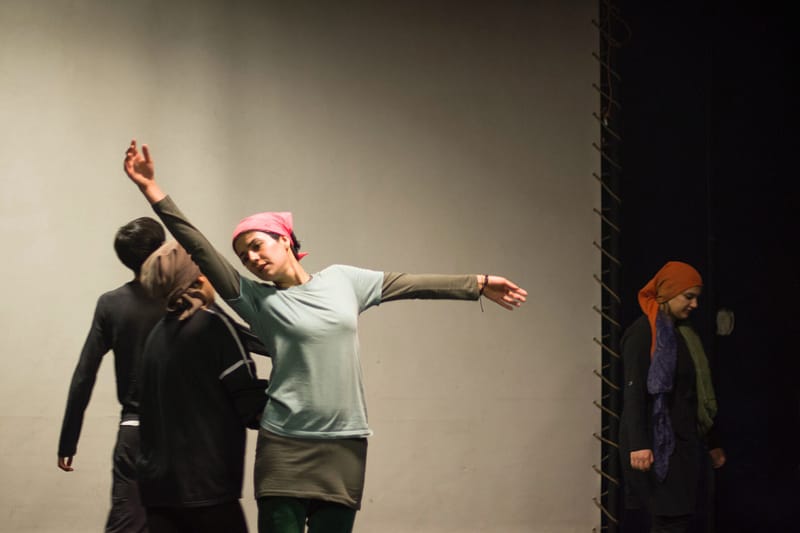
These artists and the arts organizations that often employ them have made strong commitments to engagement beyond the stage, the gallery and the studio, to increase arts access, appreciation and participation.
While this decades-old journey has affirmed the incredible power and intrinsic importance of engaged practices within a broad social justice framework, new challenges have emerged for artists and institutions; challenges that are well worth the undertaking because the outcomes are rich with both measurable and intangible impacts. In the current global environment, communities face many complex problems: poverty, war, the climate crisis, displacement, domestic violence, racism, mental health challenges and so much more. Every community and every individual is differently located in relation to these issues, of course, but engaged, community-responsive artistic practices provide powerful tools for activating, amplifying, and celebrating the voices and stories of community members.
We have seen and experienced some of the struggles faced by many arts organizations in recent years. The perpetual search for new streams of revenue to continue working in ways that we know can be transformative, is exhausting. The tensions and demands of revenue generation, program implementation, measurement of impact, enhancement of relevance, research, and innovation are persistent.
Despite this reality, or perhaps as an attempt to address some of these demands, the level of school and community engagement through the arts has increased. This speaks, we believe, to the vigorous resilience and enduring commitment to social justice, of artists and arts organizations across our global village. While the work has continued over these 20-25 years, limited attention has been given to how artists and arts organizations can best prepare themselves to work in the ever-evolving complex environments of schools and communities.
While some training opportunities have been offered through specific arts organizations and within some post-secondary institutions, there exists scant documentation or evaluation of these programs. As senior arts educators and administrators, we have employed, collaborated with, and supported artists and arts organizations engaged in communities and schools. We find ourselves asking how the artists we work with were trained, who developed that curriculum, and how was it shared across arts disciplines.
While community artists work in many different settings, we believe that there are similarities and distinct differences between school and community-based work. We therefore, consider these initial questions in relation to these unique settings.
Artists in Community
Artists don’t kick-start culture/art, it’s a shared process . . .
Inigo Manglano-Ovalle (artist)
Artist Inigo Mangalo-Ovalle inspired our early efforts to conceptualize and integrate concepts of community art, community-engaged art, the role of art in community, the role and responsibility of artists and cultural institutions, and the power of engaged practices, with our own artistic and educational practices.
Since that early time, we have had the opportunity and privilege to learn so much from and with various artists and communities, locally and internationally. Our professional journeys, while unique for each of us, have affirmed the incredible power and intrinsic importance of engaged practices within a broad, inclusive social justice framework.
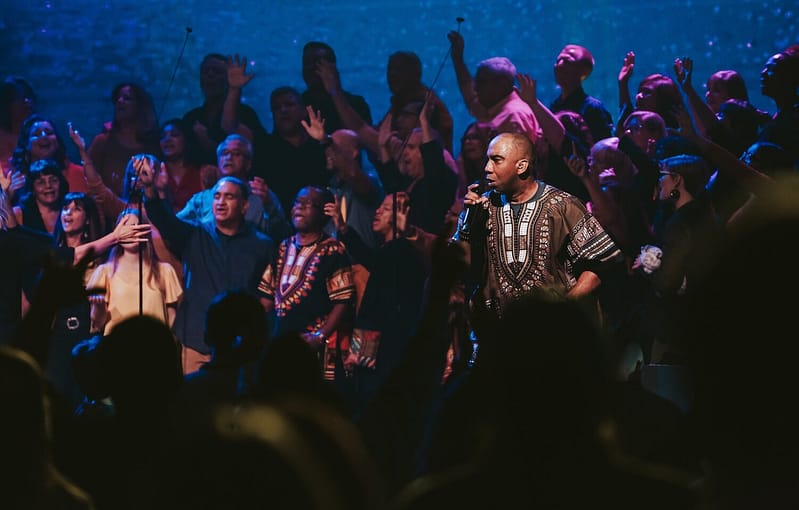
There exists a rich array of practices and gifted practitioners and organizations within the evolving arts education and community-engaged sectors. Additionally, many mainstream cultural/arts organizations recognize the significant way that arts education and community-engaged work can increase their relevance to communities, nurture new generations, and build new audiences. Alongside this evolution, artists and cultural workers need new or enhanced skills and knowledge to undertake this work. Several of the arts education and community arts organizations, as well as a few training institutions such as Centennial College, have launched professional development and training opportunities for artists working in education and community facilitation. Organizations such as Young People’s Theatre, Jumblies Theatre, STEPS Public Art, to name a few, have offered some professional learning opportunities for their rosters of community-based artists. It is not possible to know the full extent of professional learning opportunities available without a systematic study, but anecdotally, it seems that artists are generally left to their own devices to develop the skills needed to engage successfully with complex, diverse communities. Without a dedicated arts service organization for community-engaged work, practitioners have few formal supports for networking, critical dialogue, co-learning and the sharing of their stories.
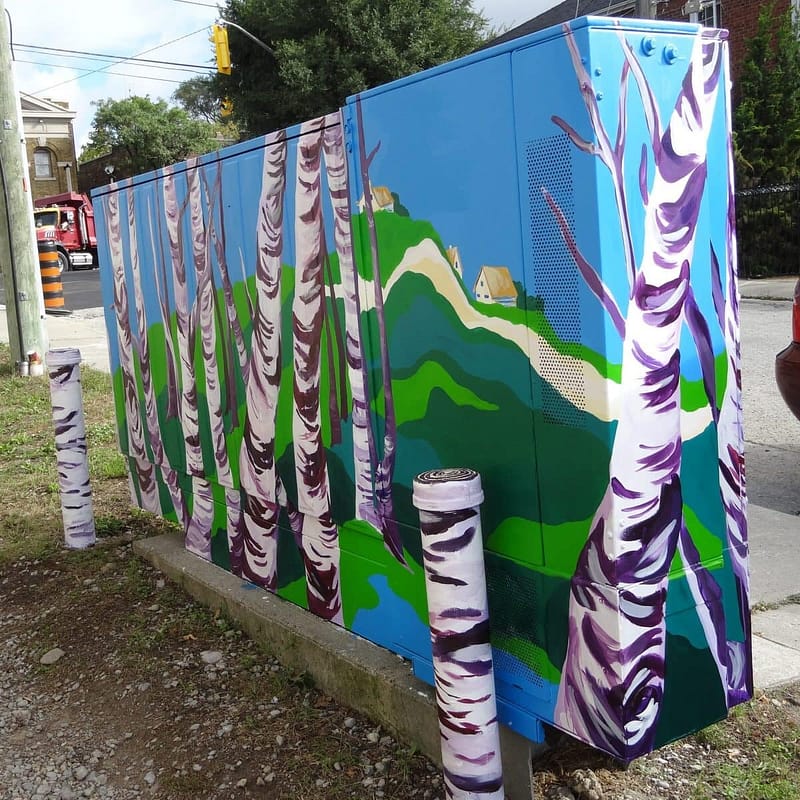
Remarkable projects are happening all over the country, conceptualized and facilitated by committed artists and/or cultural organizations, but without a more full-bodied, sustainable infrastructure for professional learning, documentation and exchange, community-engaged arts practices may not achieve their aspirations.
Artists need to be aware of the tremendous amount of extra work they are taking on in community arts work which is not normal for them in their studios. They are asked to be social workers, psychiatrists, politicians, caretakers, humanitarians, as well as great artists! No amount of training alone could accomplish that unless they have the temperament, willingness and full understanding of the task.
Kai Chan (artist)
Artists in Schools
What I do good in is art and drama ‘cause it helps me make sense of the chaos of my world.
Gr. 7 student reflection, artist-based project
Schools are complex, dynamic and ever-evolving ecosystems. The interrelationship of curriculum policy, safety procedures, school and system leadership, teacher readiness and responsiveness, and the wide range of student needs and interests are always at play.
We hold tremendous respect for artists who are willing to step into the fray. In our experience, when the arts and creativity are centred in the life of a school, the community comes alive in new ways. Creative collaborations led by artist- educators can change a school, both physically and socially. For example, many schools celebrate their community with beautiful mural projects, facilitated by some of Canada’s most esteemed artists. These visual records become enduring legacies, celebrating the specific people, place and time of the project.
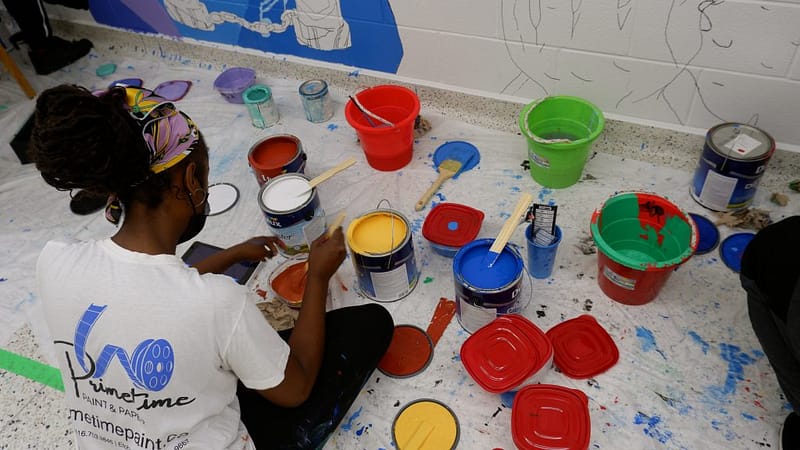
Memorable performances are often created and shared with the larger community of parents, caregivers, and neighbours, again celebrating the stories and emergent creativity that come of working with a professional theatre, dance or music artist.
I want students to know the spark has been lit, so feed…continue to feed your fire. Creative souls are compassionate souls and this world needs more compassion.
Mahlikah Awe:ri, TDSBCreates Artist Educator
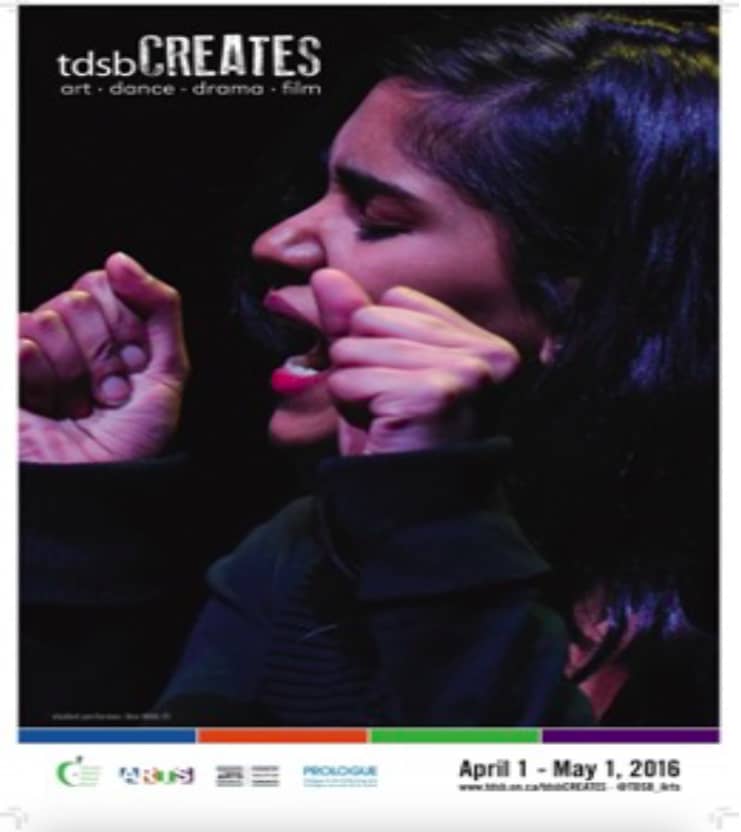
Equally, if not more significant, are the classroom-based experiences where students and teachers are forever changed by processes that invite self-expression and the artistic shaping of one’s personal voice.
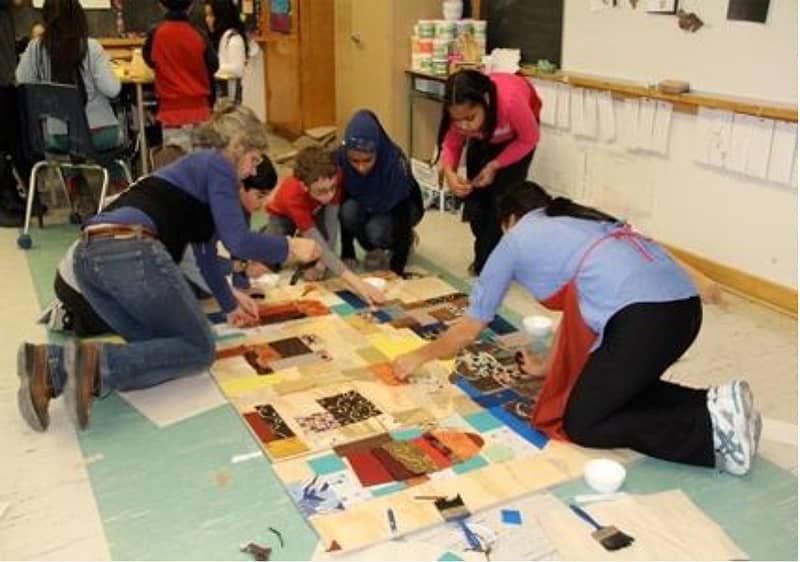
Despite the many documented benefits, barriers to artist engagement with school communities are persistent, and seem to be increasing. For instance, some Boards of Education have established bureaucratically complex systems requiring artists to apply for approval to work in schools. Teachers and principals can only contract with artists on the “approved” list. We understand that school boards want to establish high standards of safety and efficacy. Every school and every teacher aims to ensure that their students have the best possible experience when they invest their limited funds in an artist partnership project. Anecdotally, however, an unintended consequence of the cumbersome application process seems to be diminished access to artist partnerships in schools and classrooms.
Perhaps school boards would be less inclined to establish procedures that inadvertently create barriers to engagement, if we could provide a clearer picture and articulation of the skills and knowledge acquired by artists through professional learning opportunities. Also, it may be helpful to engage with school boards to ascertain what key skills, knowledge and competencies beyond the rich foundation of arts specialization, they deem essential to successful artist-school partnerships.
When I began the water cycle, I knew a little. Then I danced and I knew a lot.
Gr. 4 students, partnership project with National Ballet School
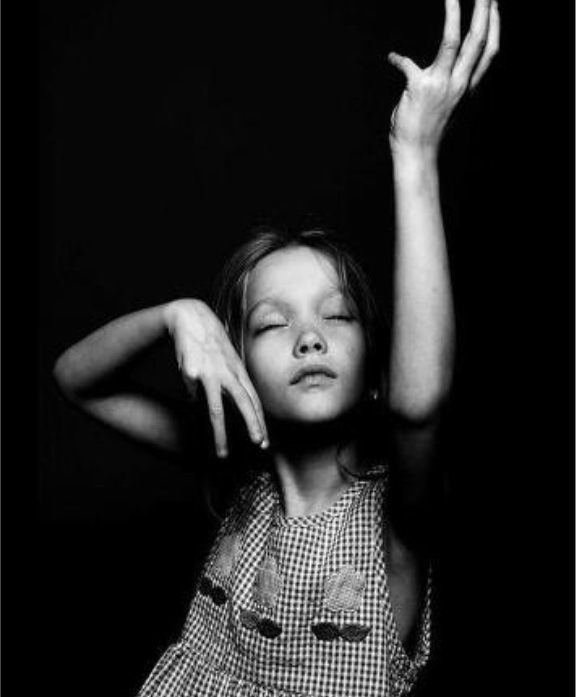
We are excited to learn what programs and initiatives currently exist to prepare artists to work in school communities. We are also keen to engage artists and educators in dialogue. School systems need to better understand the unique skills and diverse modalities for learning and creating that are on offer from the arts community. They also need to learn how to actively embrace and respect the work of artists. Artists need to learn about the complexity and foundational expectations of educational ecosystems to determine how best to locate themselves in this work.
Let’s begin to explore this landscape of learning!
There is a need for art that emphasizes our essential interconnectedness rather than our separateness. Art that evokes the feeling of belonging to a larger whole.
Suzi Gablik, cited in Arts and Belonging, 2017
